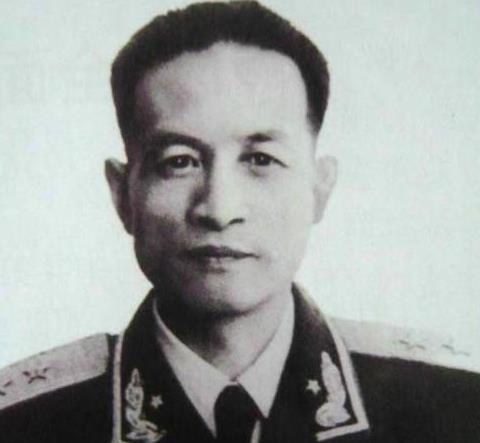During the Agrarian Revolutionary War, how many Nationalist soldiers were captured by the Red Army? I'm afraid no one can say for sure. Many of these captured Nationalist soldiers joined the Red Army. For example, Wang Zheng, who was captured in 1930 in Longgang, Ji'an, Jiangxi, then joined the Red Army and later became a founding lieutenant general. In 1935, a second-class soldier named Choi Il-fat joined the Red Army after being captured at the Battle of Zhiluo, and 17 years later his name spread around the world.

Founding Lieutenant General Wang Zheng
In 1915, Cui Rifa was born in Wei County, Hebei Province, to a poor family. My father made a living as a sharecropper for the landlord's family, and although he worked hard in the fields every day, most of the harvest was taken away by the landlord. The father hoped that this newborn son would bring him good luck, so he named him Choi Il-fat, which means to become more and more developed. In 1934, a drought occurred in Wei County, and the crops were not harvested. Many people went out to flee the wilderness, and Cui Rifa also followed the flow of people to Wuhan.
Because there are so many people fleeing, jobs are not easy to find. A few days later, Choi Il-fat took a job at a grocery store. Although he suffered and suffered, he had a bowl of rice to eat. A few months later, fighting broke out in Wuhan, the grocery store was destroyed in the shelling, and Cui Rifa lost his job. To earn a living, he served as a second-class soldier in the 109th Division of the Northeast Army. In November 1935, the 109th Division was ordered to fight the Red Army in northern Shaanxi and was completely annihilated at the Battle of Zhiluo. Division commander Niu Yuanfeng was killed and thousands of Nationalist soldiers were captured.
At that time, the policy of the Red Army in dealing with prisoners was to stay voluntarily, to pay for the journey to return home, and to be willing to participate in the welcome of the Red Army. Cui Rifa was born in a poor family, and the Red Army was a team that fought for the poor people, so he did not hesitate to stay and join the Red Army. After that, Cui Rifa and his troops successively participated in the War of Resistance Against Japanese Aggression and the War of Liberation, and were promoted to the commander of the 45th Division with accumulated military achievements. In late March 1951, Cui Rifa led the 45th Division to follow the 15th Army across the Yalu River and participate in the War to Resist US Aggression and Aid Korea.
After the end of the Fifth Campaign, the 45th Division was ordered to garrison Shangganling. On October 14, 1952, Clarke, the third commander-in-chief of the "United Nations Army", approved the "Operation Showdown" plan proposed by Van Vleet, commander of the US Eighth Army, and the Battle of Shangganling officially broke out. Before the war, Qin Jiwei, commander of the 15th Army, judged that the main direction of attack of the US army would be in the Pingkang River Valley, because the terrain here was flat and open, which was very suitable for the us mechanized troops to attack. The Shangganling Mountains are more than 500 meters high, the mountain roads are rugged and difficult to navigate, and the advantages of the US mechanized troops will be greatly limited.
Therefore, Qin Jiwei focused the defense of the whole army on the Pingkang River Valley, not only deployed two divisions here, but also placed the main artillery fire of the whole army here. Unexpectedly, Van Vliet's old treacherous giant monkey actually targeted Shangganling and caught the 15th Army by surprise. In the early stage of the Battle of Shangganling, due to the lack of support from the artillery fire of the army, the 45th Division fought extremely hard, and in just one week, all the surface positions of Shangganling were lost and had to retreat into the tunnel defense.
Due to a misjudgment of the enemy's main offensive direction before the war, the 15th Army did not store enough food and drinking water in the Shangganling Tunnel. As a result, the tunnel troops soon fell into a predicament, and due to the severe lack of water, the throats of the soldiers were on fire one by one, and they could only guard the steamed buns and biscuits to starve. In order to deliver water to the tunnel, many transport fighters sacrificed in the line of fire. Later, it was changed to send apples to the tunnel, and it was stipulated that sending a basket of apples could be awarded second class merit. However, due to the excessive blockade of The American artillery, only one apple was finally sent into the tunnel.
It was under such difficult circumstances that Cui Rifa led the 45th Division to fight the enemy on shangganling for 43 days and nights, repelling more than 900 enemy charges. American casualties were 125 times higher than pre-war estimates, and VanVleet was overdone. The Battle of Shangganling completely subdued the Americans, and after that they never took the initiative to launch a battalion-sized attack on the volunteer army. In 1954, Cui Rifa was elected as a deputy to the National People's Congress, and in recognition of his outstanding military achievements in the Battle of Shangganling, the conference secretariat specially renamed him "Cui Jiangong". The name soon spread around the world, and in 1955 Cui Was awarded the rank of Major General.